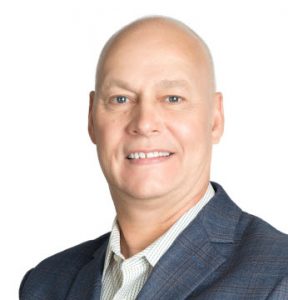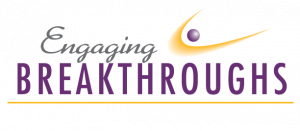Effective Communication Skills Change Everything

Since I left my corporate consulting career to found Engaging Breakthroughs, I’ve been doing the work that I really love. I help individuals and teams to create the experiences they really want in their careers. However, it wasn’t always this way. There was a time as a consultant when I needed to improve my own leadership. Specifically, I needed to grow more effective communication skills.
What Dynamics are Holding You Back?
I found that there were two dynamics that would show up frequently and hold me back in my leadership. In one dynamic, if I was in a meeting with people who were in roles that I perceived to be above mine, I would hesitate to speak up. For example, I’d go to a sales presentation with the CEO. As the discussion happened, there were opportunities for me to jump in with confidence. However, I failed to speak up.
I recall leaving a meeting like this and learning that my boss was angry with me. He expressed that he wanted me to take the lead. However, because I was intimidated, I didn’t show up powerfully. The opportunity to make a difference passed me by.
In another dynamic that showed up, I had difficulty expressing anger and frustration effectively. I had expectations of how I want my direct reports to work. When they didn’t meet those expectation, I’d express my anger and frustration in ways that caused rifts in my relationships. While I was meek in meetings with people above my rank, I was ungracefully wielding my power over those below me.
These dynamics weren’t helping me on either end. They contributed to a sense that I didn’t know what I was doing. This impacted my confidence in a negative way. Ultimately, my need for more effective communication skills impacted how I looked at myself and my work.
One day, I was introduced to 4 channels of communication. It started to make sense to me. I really began to understand what was happening in the communication dynamics I experienced.
Effective Communication Skills Start With the 4 Channels
To communicate clearly and effectively, the 4 channels of communication can guide us. These channels include:
- First, get clear on what’s true (the facts)
- Next, get clear on your feelings
- Then, get clear on your judgments and projections
- Lastly, get clear on what you want
Let’s walk through these channels with my experience as an example. We’ll discuss how I developed more effective communications skills under this model, and how it changed my career.
When it’s time for a difficult conversation, it’s important for all parties to be clear on the facts so the communication can be productive. This can be challenging for people because judgments are often introduced as facts. Once I began to get clear on the facts without any stories in them, those facts became easier and clearer for me to articulate. I began to see how my colleagues simply reminded me of other people in my life who had been much more powerful than me and shut me down, or who expressed dissatisfaction with me. This practice allowed me to have more effective conversations with the people in my workplace, because I was acknowledging real facts rather than my stories around them. This is the heart of communication.
Next, once the facts are agreeable, it’s important to approach the rest of the conversation with emotional intelligence. This is the time to get clear about feelings. In professional business environments, I didn’t see much encouragement to embrace my feelings. Instead, I reserved emotions for my family or my yoga classes. However, failing to acknowledge feelings didn’t mean they weren’t there. Simply coming to terms with the fact that I felt angry, sad, and fearful about my work was freeing. Suddenly, I didn’t have to pretend those feelings didn’t exist. I began to embrace my emotions. Furthermore, I started to understand there was nothing wrong with me for feeling them. Leaning into my emotions actually helped loosen their hold on me. When I was able to connect to what I was feeling, it helped me determine the healthy steps I could take next. I enlisted some high quality support to help me identify emotional patterns and make a shift around those feelings.
Next, I began to get clear about my judgments. I found that I was frequently projecting judgments on to the people around me. In other words, I told myself stories about what they were thinking (often negative thoughts) and how that impacted my feelings. In the support that I received, I learned that I was seeing others through my own filters. I was telling myself what they were doing without any real validation from them. Because of this, I didn’t have a real connection with my team members.
After identifying the facts, emotions, and judgments, it became easier to get clear on what I wanted from my relationships. For a long time, the hardest barrier to overcome to have more effective conversations was to get clear about what I wanted. That’s because I could easily express what I didn’t want. For instance, I didn’t want to be intimidated in meetings. I also didn’t want my team to drag on deadlines or come to me with petty problems without solutions in mind. When it came to expressing what I wanted from the other people and from myself, I had difficulty looking at the positive. However, with high quality support, I was able to get clear on what it was I really did want. I wanted to speak up with confidence in meetings. I wanted my team to accomplish tasks on time and to collaborate with each other independently.
Practicing Effective Communication Skills
Consider the 20/200 rule. It takes 20 times for something new to become comfortable, and 200 times for it to become a habit. After I learned about the 4 channel communication model, I practiced it regularly. Within a few months, things got easier with this tool at my disposal. The idea that I could take small steps enabled me to stick with it. I was able to incorporate this new way of seeing myself and how I was communicating with others into my everyday life.
Within a year of the time when I wasn’t showing up confidently, my boss asked me to work with his management team on effective communication. Ultimately, my partner and I consulted for the exact team of people that I was afraid to talk to before. Now, I’m doing what I love every single day. Effective communication skills changed everything for me. They can change everything for you, too.
Effective Communication Skills: A Coaching Offer
Do you feel stuck in your communication with your superiors, colleagues or clients?
Through the end of October 2019, we are offering a 1- hour communication coaching session for only $198 (a $398 value). Work one-on-one with a seasoned coach to get clear about your blind spots and practice the 4 channels of communication before you have that important conversation that could change your life. Get more of what you want in life. We’ll show you how!
Click here to book your coaching session now.
 |
Written by Craig Tennant Founder, Engaging Breakthroughs Transformation Architect and Breakthrough Coach At Engaging Breakthroughs, Craig Tennant delivers breakthrough success workshops and online life coaching to increase emotional intelligence. He offers proven leadership development for leaders who seek to build effective teams, break through to success in their careers, and discover life beyond the 9 to 5. |
